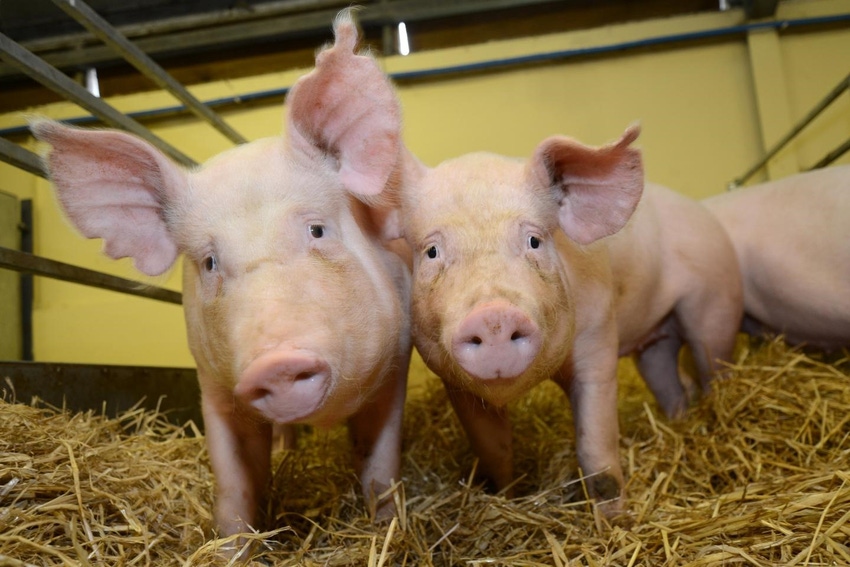While previous studies showed that cells from gene-edited pigs were resistant to PRRS in lab tests, new research found that the edited pigs do not become infected at all.

Scientists have produced pigs that can resist one of the world's most costly animal diseases by changing their genetic code, according to an announcement from The Roslin Institute at the University of Edinburgh in the U.K.
Tests with porcine reproductive and respiratory syndrome (PRRS) virus found that the pigs do not become infected at all, the scientists said, noting that the animals show no signs that the change in their DNA has had any other impact on their health or well-being.
PRRS costs the pig industry around $2.5 billion each year in lost revenue in the U.S. and Europe alone, the announcement said. The disease causes breathing problems and deaths in young animals, and if pregnant sows become infected, it can cause them to lose their litter.
The PRRS virus infects pigs using a receptor on their cells' surface called CD163. Researchers at The Roslin Institute used gene editing techniques to remove a small section of the CD163 gene.
They focused on the section of the receptor that the virus attaches to, leaving the rest of the molecule intact.
The team collaborated with Genus PLC, a leading global animal genetics company, to produce pigs with the specific DNA change.
Previous studies had shown that cells from these animals were resistant to the virus in lab tests, the institute said, noting that this is the first time that researchers have exposed these pigs to the virus to see if they become infected.
They found that none of the animals became ill when exposed to the virus. Blood tests found no trace of the infection.
This research, co-funded by the U.K.'s Biotechnology & Biological Sciences Research Council and Genus, was published in the Journal of Virology.
PRRS is endemic in most pig producing countries worldwide. Vaccines against the PRRS virus have been inconsistent because the virus continues to evolve rapidly.
The Roslin Institute pointed out that other groups have used gene editing to create PRRS-resistant pigs by removing the whole CD163 receptor, but removing only a section of CD163 allows the receptor to retain its ordinary function in the body and reduces the risk of side effects, the researchers said.
Dr. Christine Tait-Burkard of The Roslin Institute said, "These results are exciting, but it will still likely be several years before we're eating bacon sandwiches from PRRS-resistant pigs.
"First and foremost, we need broader public discussion on the acceptability of gene-edited meat entering our food chain, to help inform political leaders on how these techniques should be regulated," Tait-Burkard said.
"We also need to carry out longer-term studies to confirm that these genetic changes do not have any unforeseen adverse effects on the animals," she added. "If these studies are successful and the public are accepting of this technology, we would then be looking to work with pig breeding companies to integrate these gene edits into commercial breeding stocks."
Genetically modified animals are banned from the food chain in Europe and are subject to strict regulations in the U.S. It is not clear what regulations would apply to gene-edited animals, however, as the approach is different, the institute said.
While genetic modification techniques can involve introducing genes of other species into an animal, gene editing speeds up processes that could occur naturally through breeding over many generations, without introducing genes from other species, The Roslin Institute explained.
Professor Alan Archibald said, "Gene editing gives us a powerful tool to help reduce losses in the farming industry while improving the health and welfare of the animals themselves."
Genus chief scientific officer Jonathan Lightner added, "These results are very exciting and further underscore the potential, through gene editing, to provide incredible benefits to the global pork industry, and society as a whole, by improving animal health. We look forward to further collaboration with the University (of Edinburgh) on this exciting project."
About the Author(s)
You May Also Like
.png?width=300&auto=webp&quality=80&disable=upscale)


